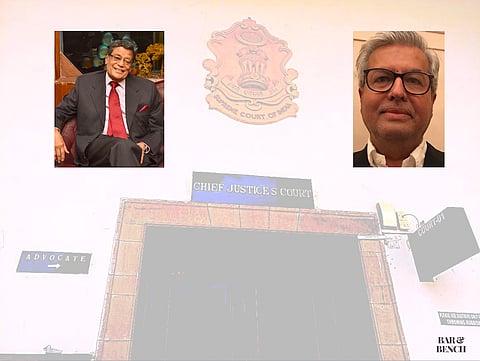
- News
- Columns
- Interviews
- Law Firms
- Apprentice Lawyer
- Legal Jobs
- हिंदी
- ಕನ್ನಡ

The Supreme Court today reserved its verdict in the Public Interest Litigation filed by Senior Advocate Shanti Bhushan seeking to put a check on the powers of the Chief Justice of India as Master of Roster.